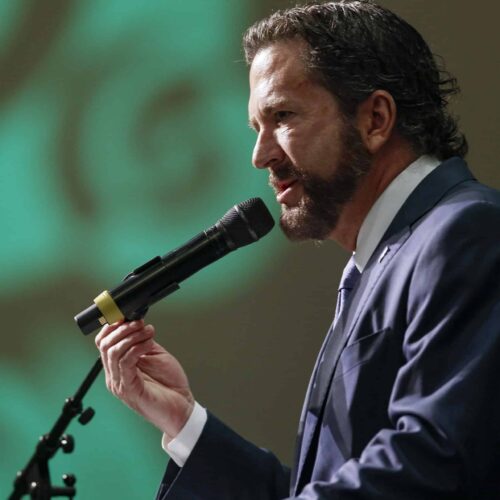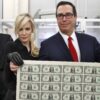Introduction
Subscribe on Spotify | Google | Stitcher | TuneIn | Pandora | Apple Podcasts
Episode 1 of The Heist
In June 2017, a group of 400 conservative donors was wrapping up a conference organized by the Koch Brothers at the five-star Broadmoor resort in Colorado Springs.
The 450-acre retreat offers activities such as horseback riding, fly fishing, golfing, $260 deep-tissue massages, all situated among sparkling views of the Rocky Mountains.
But the mood inside was tense.
“The feeling politically at that meeting was a lot of frustration,” said wealthy Dallas political donor Doug Deason, the son of billionaire entrepreneur Darwin Deason.
The donors were upset with Republicans in Congress. The GOP controlled the House, the Senate and the Oval Office. Yet they hadn’t overturned Obamacare or cut taxes, as Republicans had promised on the campaign trail the previous year.
Irritated, Deason announced that his “Dallas Piggy Bank,” as he likes to call it, was closed for business. He wasn’t going to write checks to campaigns or hold fundraisers until Congress did what it said it would do.
What unfolded in subsequent months offers an instructive example of how the wealthy and well-connected drive policy in the Trump administration.
Get it done
Deason, whose neighbors in his exclusive Dallas neighborhood include former President George W. Bush and Don Henley of the Eagles, wrote an email to his wealthy Republican friends, encouraging them to hold back on campaign contributions as well. Many agreed, and contributions began to slow. Deason stopped giving almost entirely from July into November 2017, according to a Center for Public Integrity analysis of campaign finance data.
Republicans in Congress, terrified that their wealthy donors would not contribute to their campaigns for the upcoming 2018 midterm elections, got the message.
“My donors are basically saying: ‘Get it done or don’t ever call me again,’” Rep. Chris Collins, R-New York, said as Congress was debating the Tax Cuts and Jobs Act, which slashed the corporate tax rate and gave hundreds of millions of dollars to the wealthy. (Collins was convicted this year of insider trading and sentenced to more than two years in prison.)
Sen. Lindsey Graham, R-S.C., said GOP donors would quit giving if Congress didn’t pass the bill.
Critics of big money in politics pounced.
“There was very much an atmosphere of payment on delivery, like, ‘You will get paid when you deliver this particular piece of legislation,’” Rep. John Sarbanes, D-Md., said in an interview with Public Integrity.
Sarbanes and advocates for campaign- finance reform call this kind of politics “pay-to-play.” They don’t think it’s fair to Americans who lack the money to get the kind of access Deason and other wealthy donors have.
Public Integrity’s investigation found that Deason reopened his Dallas Piggy Bank after the tax-cuts bill looked like it was going to pass. Dozens of other rich Republican donors opened their wallets, too.
“The tax bill and how that came to be, I think really is Exhibit A of how the influence of money can distort and warp public policy in a way that cuts against the broad interest of the public,” Sarbanes said.
The Platinum Age
Politicians rely on campaign contributions to win reelection, but they turn to a very small — but affluent — slice of America to get that money, said Meredith McGehee, executive director of Issue One, a nonpartisan advocacy group in Washington, D.C.
“You know, there’s an old line of, ‘He who pays the piper calls the tune,’” said McGehee, who has been working on campaign-finance reform for more than 30 years. “That’s pretty much a description of the money and politics system in Washington.”
Norm Ornstein, one of the country’s top political scientists, agrees.
“I would say right now we are in the Platinum Age,” a wealthier period than the Gilded Age in the late 19th century, Ornstein said. “It is even more true that the wealthiest among us, the multi-billionaires, the hedge-fund operators, the people who have made a fortune, often through finance and the big companies now dominate our policy.”
Deason sees nothing untoward in his tactics three years ago.
“Contrary to what a lot of the mainstream media put out at that time, … there’s nothing about trying to buy a position,” he said. “It’s not like I was calling people up threatening them.”
Deason acknowledges he has access to politicians that most Americans don’t. Asked if he thinks that’s fair, he replied, “You know, I’ve never really thought about if that’s fair or not.”




Join the conversation
Show Comments